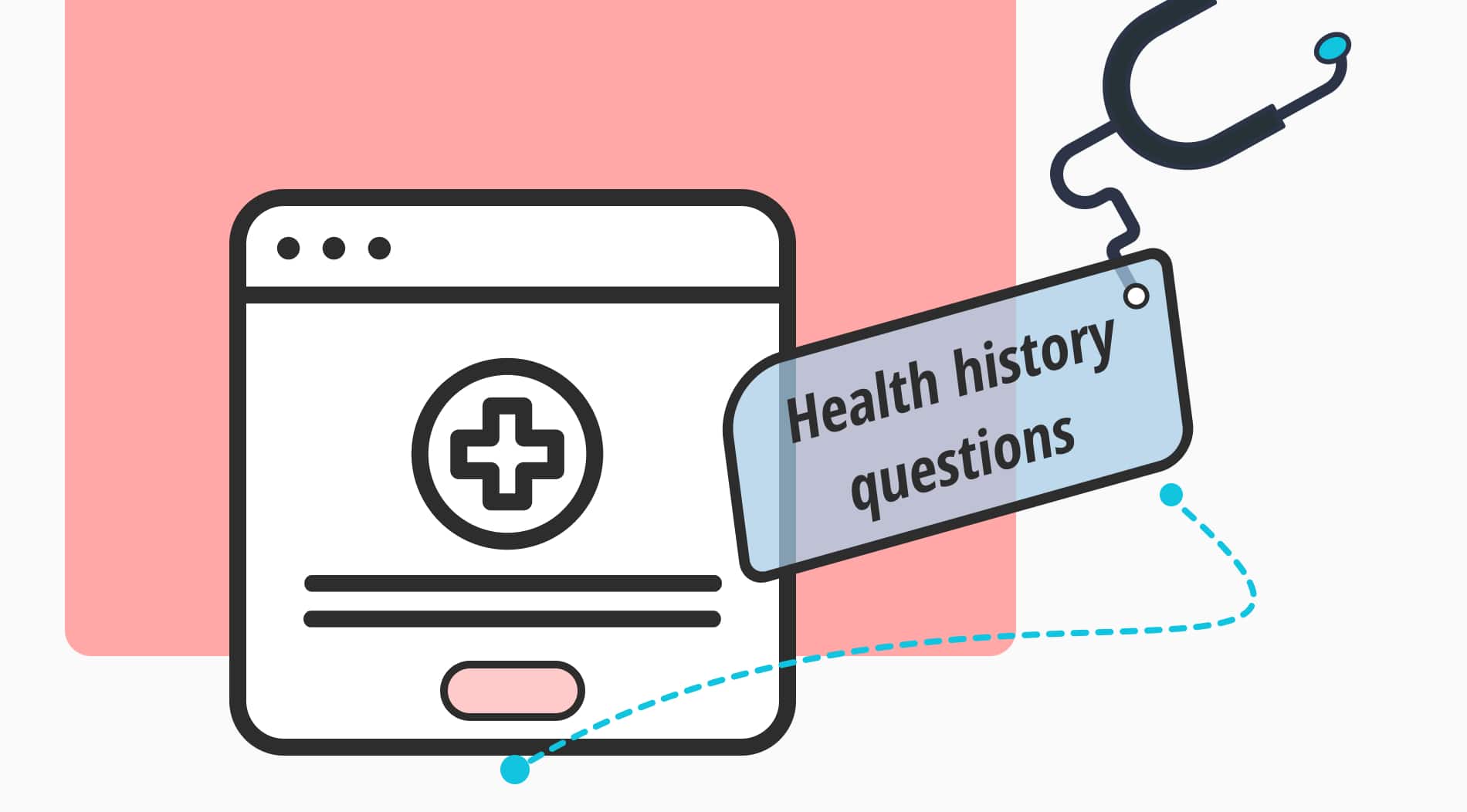Questionnaires are one of the most practical and fast methods of obtaining information from individuals in any industry. The healthcare industry is no exception. Health questionnaires are questions used by medical researchers, doctors, hospitals, or any other healthcare provider to learn peoples’ health situations.
The specifics of a patient's medical history are necessary for a doctor to treat a patient effectively. A health history questionnaire allows paramedics to quickly and easily gather information about patients’ health histories. This article will explain the definition of a general health history questionnaire and 35 essential health history question examples to ask in your survey.
What is a health history questionnaire?
A health history questionnaire is an online document patients complete to give the healthcare provider essential details about their health and medical history. A health history questionnaire typically asks questions about:
- current previous illnesses,
- allergies,
- family health history,
- and lifestyle choices (like smoking and exercise)
Collecting medical information from new patients is a crucial step for medical professors. The primary purpose of a health history survey is to aid medical professionals in understanding an individual’s health to deliver effective treatment and care.
35+ must-ask health history questionnaire questions
Before determining the treatment method, health professionals want to learn about the patient. Doctors must know the patient's age if the patient has allergies, past illnesses, and more. In case of any missing information, the patient may be treated incorrectly. Here are the best 35 health history question examples for your questionnaire.
Demographic questions
A health history survey must include demographic questions. These inquiries are intended to assist the researcher in identifying potential influences on the respondent’s capacity for decision-making. You can learn general information about the patient with these demographic questions.
1. What is your gender?
- Female
- Male
- I prefer not to answer
2. What is your age?
- Under 18 years
- 18-25
- 26-31
- 32-40
- 41-50
- 51-60
- 61-70
- 70+
3. What is your job?
- Officer
- Engineer
- Architect
- Doctor
- Retired
- Housewife
- Teacher
- Employee
- Other (Please specify)
4. Are you married?
- Yes
- No
- I prefer not to answer
5. What is your blood type?
- A+
- A-
- B+
- B-
- AB+
- AB-
- O+
- O-
6. What is your education status?
- Elementary school
- High school
- College
- Graduate school
7. What is your ethnicity?
- Asian
- White
- Native American
- Native Hawaiian
- Black
- Other (Please specify)
8. What is your employment status?
- Unemployed
- Homemaker
- Retired
- Student
- Full-time employee
- Part-time employee
- Unable to work
9. Where do you live?
- In the city
- In town
- In the village
- Other (Please specify)
10. What is your phone number?
11. What is your email address?
Questions about past illnesses
The patient's current condition is essential, as well as the diseases they have had in the past, to determine the suitable treatment method. Doctors should know the patient's past illnesses. You can use these questions about past illnesses in your questionnaire.
12. What illnesses or diseases have you had in the past?
- Influenza
- Chickenpox
- Measles
- Mumps
- Rubella
- Whooping Cough
- Tuberculosis
- Malaria
- Hepatitis
- Diabetes
- Asthma
- Cancer
- Other (Please specify)
13. Since your initial diagnosis and treatment, have your illnesses returned?
- Yes
- No
14. How has the illness impacted your daily life and activities?
- Increased fatigue and exhaustion
- Difficulty concentrating
- Reduced ability to perform daily tasks
- Reduced physical activity
- Changes in sleeping patterns
- Changes in eating habits
- Changes in mood or emotional state
- Other (Please specify)
15. What medical care did you get for the illness?
- Prescription medication
- Home remedies
- Vitamins and supplements
- Therapy
- Surgery
- Alternative medicine
- Other (Please specify)
16. When did you first notice the disease's symptoms?
17. Are there any risks or long-term effects related to the illness?
- Yes (Please specify)
- No
18. Do you have any emergency medication on you?
- EpiPen
- Benadryl
- Inhaler
- Antihistamine
- Painkillers
- Antibiotics
- Other (Please specify)
19. Have you had tetanus shots recently?
- Yes
- No
- Other (Please specify)
20. Have you ever suffered a fracture or sprain?
- Yes
- No
- Other (Please specify)
21. Have you had stitches before?
- Yes
- No
- Other (Please specify)
Questions about allergies and other health issues
After learning about the patient's general condition, the first thing should be to learn about allergies. Allergies and other health issues are essential in determining the form of treatment. You can use these practical questions about allergies and other health issues to ask in your survey.
22. Do you have any allergies?
- Yes
- No
23. What kind of allergies do you have?
- Food Allergies
- Pet Allergies
- Insect Sting Allergies
- Drug Allergies
- Latex Allergies
- Mold Allergies
- Eye Allergies
- Other (Please specify)
24. When was your allergy first diagnosed?
- +10 years ago
- 7 years ago
- 5 years ago
- 3 years ago
- 1 year ago
- 6 months ago
- 3 months ago
- Nowadays
25. Do you have any family members with allergies?
- Yes
- No
- Other (Please specify)
26. What happens to your body when exposed to an allergen?
- Itchy skin
- Swelling of the face, lips, tongue, and throat
- Wheezing and difficulty breathing
- Runny nose and watery eyes
- Nausea, vomiting, and diarrhea
- Other (Please specify)
27. Have you experienced any new allergens recently?
- Yes
- No
- Other (Please specify)
28. What medications or treatments are best for you to avoid?
Questions about family health history
Some diseases are genetic. Therefore, it is essential to obtain information about the patient’s families. You can use these ready-made questions about family health history to ask your family health history questionnaire.
29. Do you have a family history of chronic diseases such as cancer, diabetes, heart disease?
- Yes
- No
- Other (Please specify)
30. What chronic diseases or conditions have your family been diagnosed with?
- Diabetes
- Heart Disease
- Hypertension
- Cancer
- Asthma
- Obesity
- Thyroid Disease
- Alzheimer's Disease
- Other (Please specify)
31. Have there been any genetic disorders or congenital disabilities in your family?
- Yes
- No
- Other (Please specify)
32. Have your family members been hospitalized or had major medical procedures?
- Yes
- No
- Other (Please specify)
33. Have any family members passed away at a younger age due to health-related issues?
- Yes
- No
- Other (Please specify)
34. Are any measures taken to prevent severe health issues in your family, such as regular health screenings or lifestyle changes?
- Yes
- No
- Other (Please specify)
35. Do you have a disabled person in your family?
- Yes
- No
- Other (Please specify)
How to create an online health history questionnaire (with a free template)
A health history questionnaire is a practical way to learn about a patient’s general information, health status, medications, or allergies. Different types of health history questionnaires are available, including family and fitness health history questionnaires. Here are steps to create your health history questionnaire without any code writing skills on forms.app.
1 - Sign in or create a forms.app account
As a healthcare professor, you can create a compelling health history questionnaire with just a few clicks without expert knowledge. First, you can log into your existing account. If you don’t have an account, you can create one in seconds and sign up for free.
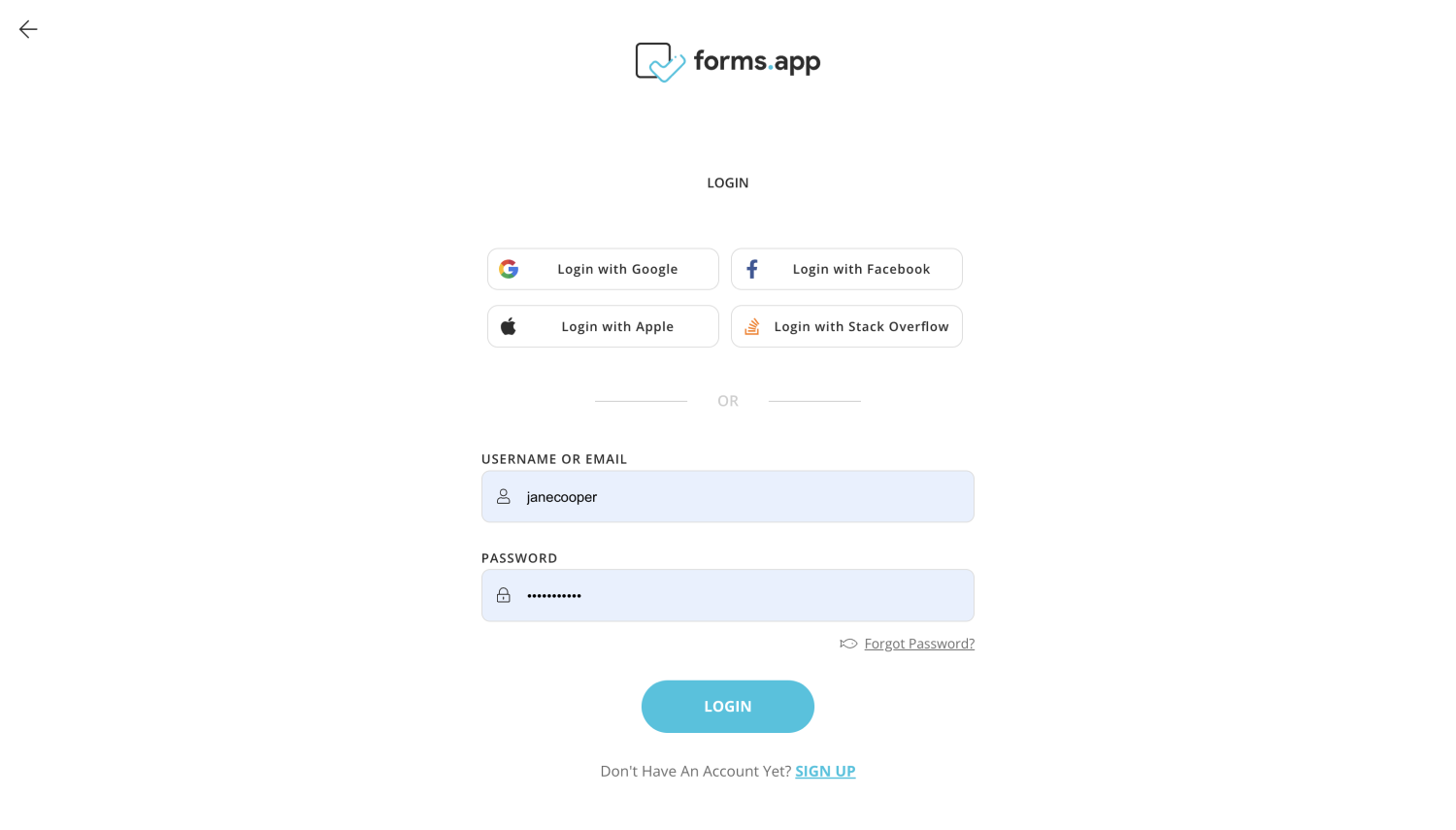
Log in to forms.app or create an account for free
2 - Choose ready-made templates or begin to form scratch
You can select templates for many topics on forms.app. You can easily and quickly create your health history questionnaire by choosing ready-to-use questionnaire templates. Additionally, you can create your questionnaire from scratch.
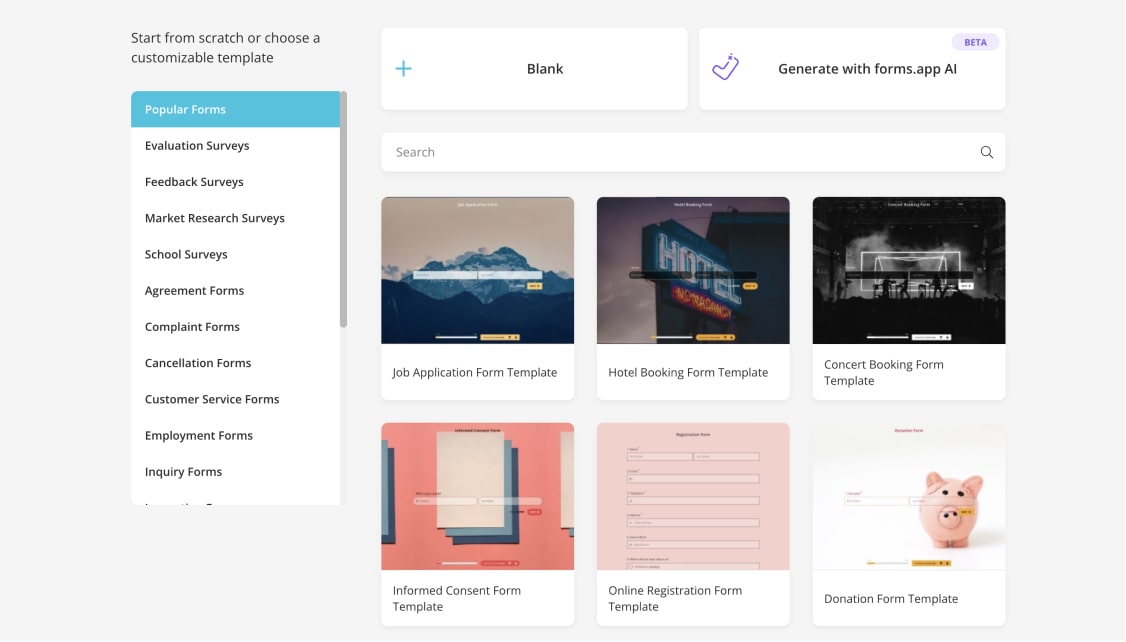
Choose the best starting option for you
3 - Edit your health history questionnaire
You can edit the ready-made questions according to your needs. You can change, add or remove the questions. Use the best health history questionnaire question examples we shared above.
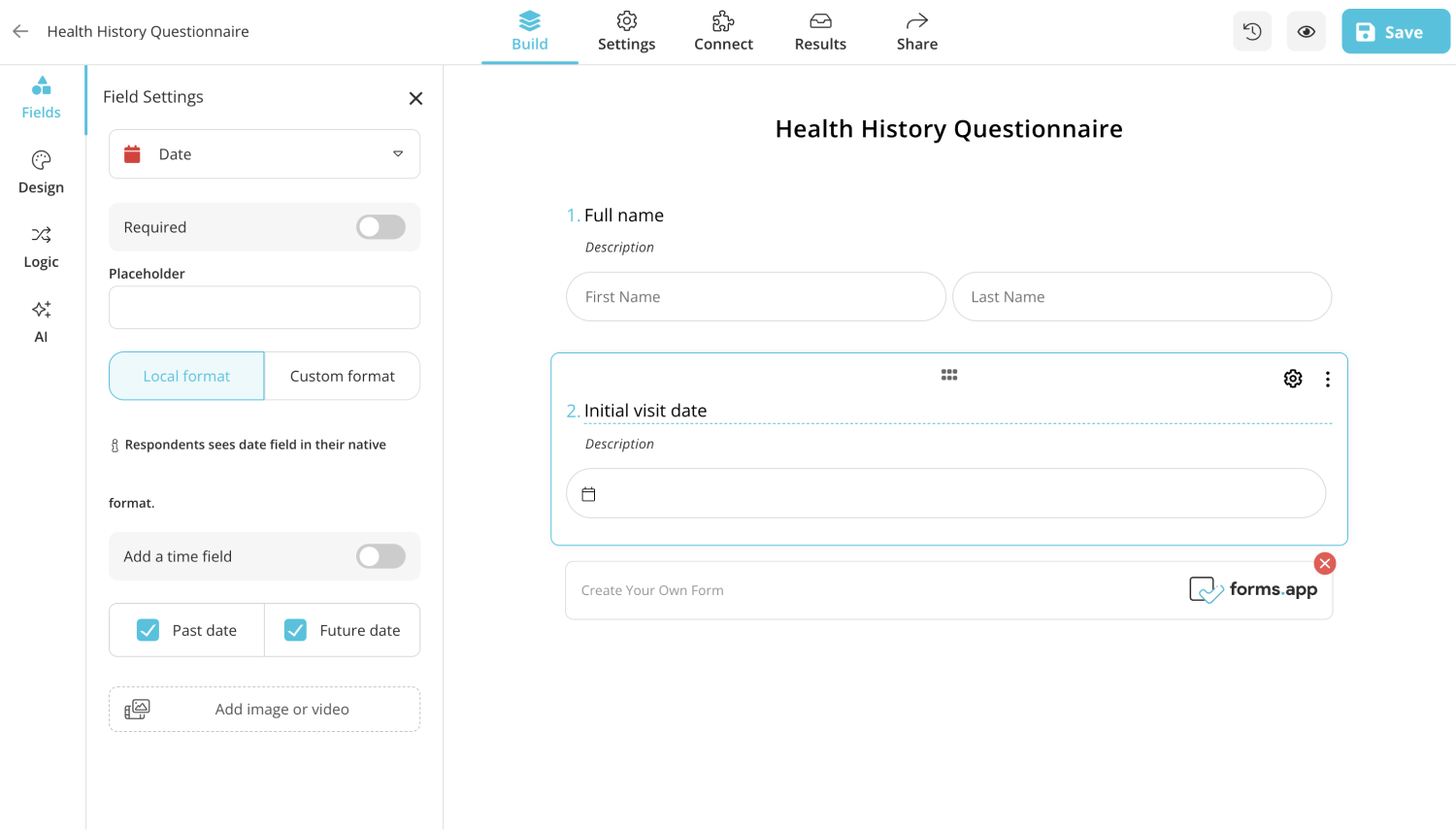
Add questions to your health history questionnaire
4 - Change your questionnaire design
Choosing an attractive theme is essential for improving the appeal of your questionnaire. You can increase participation in the questionnaire when your survey is well-designed. forms.app offers dozens of colorful themes for its users. You choose one of the ready-to-use attractive themes for your health history questionnaire.
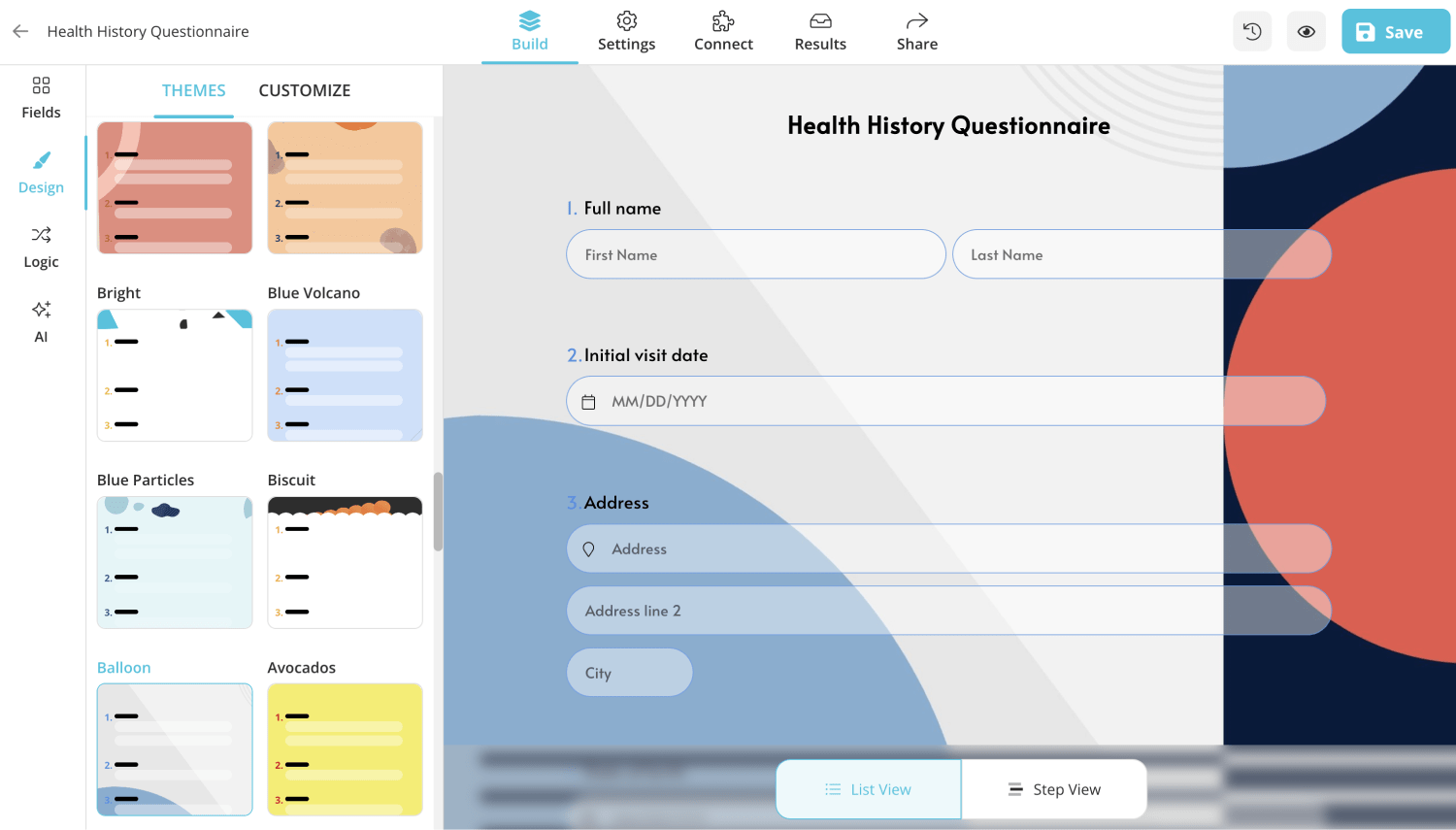
Make changes to your questionnaire design
5 - Adjust the settings and share your survey
It is ready to use after you complete all the settings in your health history questionnaire. You can save the questionnaire you have designed and share it with the patients or individuals by sharing a link, sending a link, or embedding your questionnaire on your website.
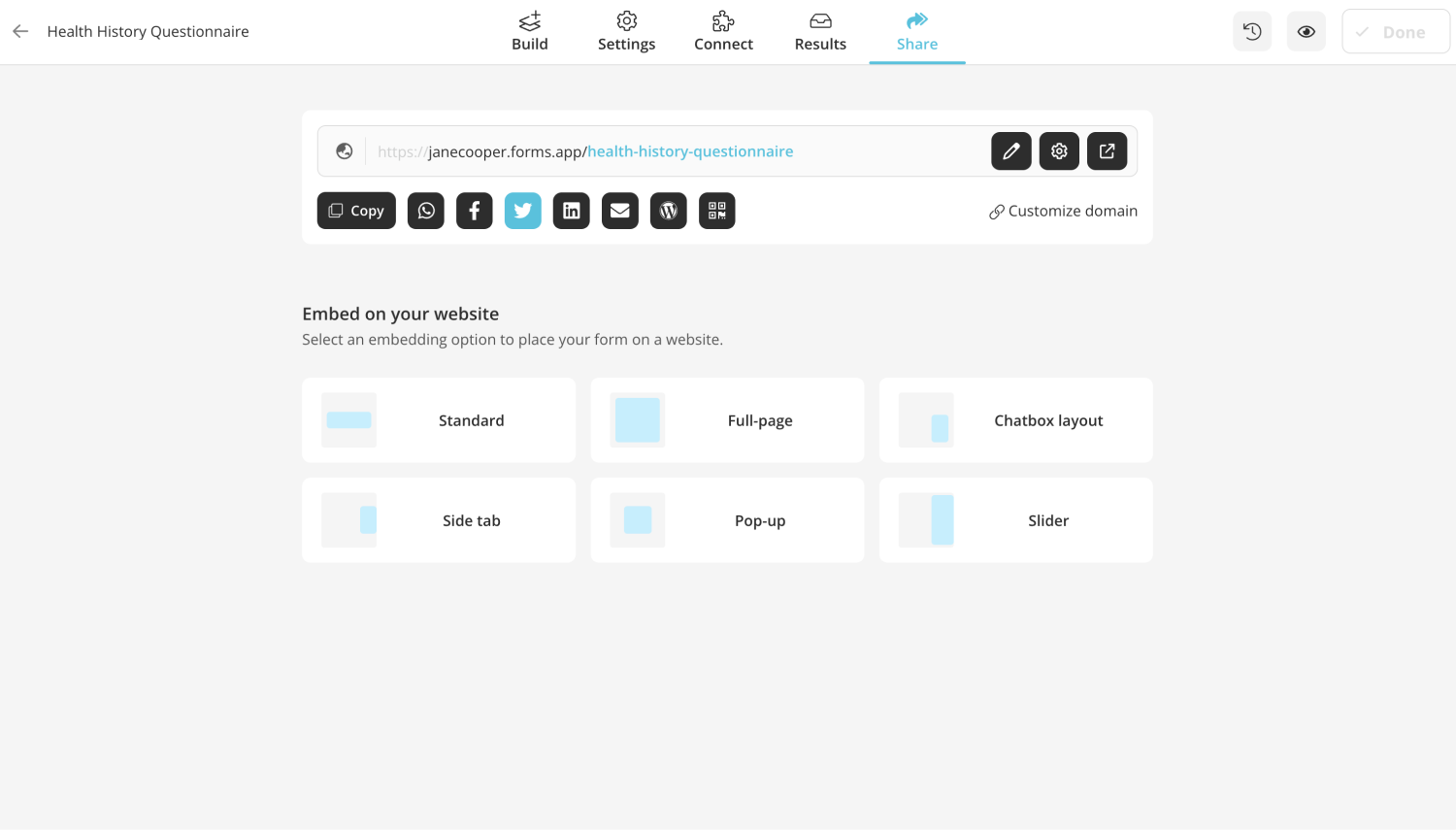
Share your questionnaire or embed it on a web page
Wrapping it up
In conclusion, a health center or hospital can obtain people’s situations regarding their care and services by conducting a health history survey. With the help of the health history questionnaire you prepared on forms.app, you can get the answers of patients quickly and effectively.
With the aid of this survey tool, medical personnel can swiftly gather general facts about the patient, their family health history, allergies, and previous diseases. You can create your health history questionnaire with just a few clicks on forms.app.
Sena is a content writer at forms.app. She likes to read and write articles on different topics. Sena also likes to learn about different cultures and travel. She likes to study and learn different languages. Her specialty is linguistics, surveys, survey questions, and sampling methods.
